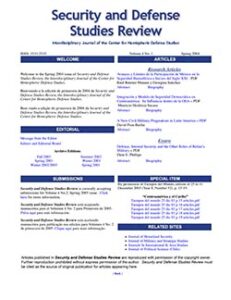There is a new civil-military pragmatism in the region defined by armies that engage in internal, role expansive missions at the behest of democratically elected officials. In the past, the armed forces would exploit such missions for their own political gain, while revising doctrines to make role expansion a permanent feature of military orientation. Instead, today’s armies have undertaken missions for purposes of helping civilian leaders fill vacuums and resolve specific problems that could not otherwise have been adequately dealt with. Military cooperation in this regard is dutiful but not altruistic; the military’s objective is to parlay these ventures into a justification for greater defense budget shares, salaries, and equipment. But role expansion is not inherently threatening to civilian control so long as soldiers remain decision-takers not makers. This they have, as brief case studies of Argentina and Venezuela make clear.

